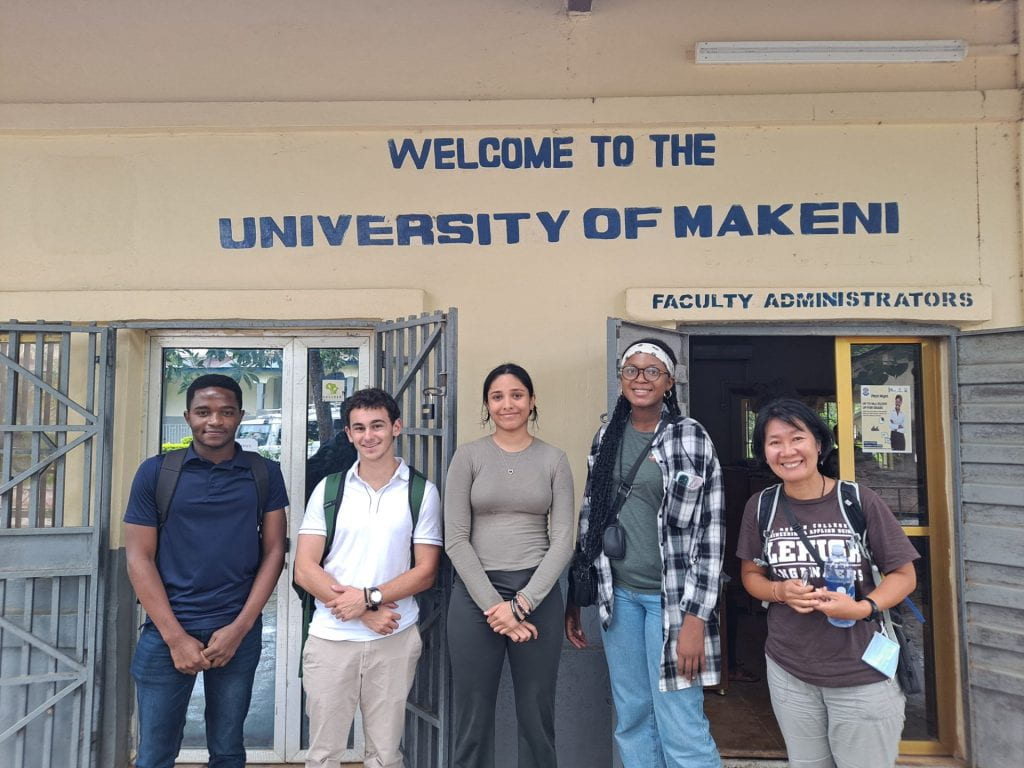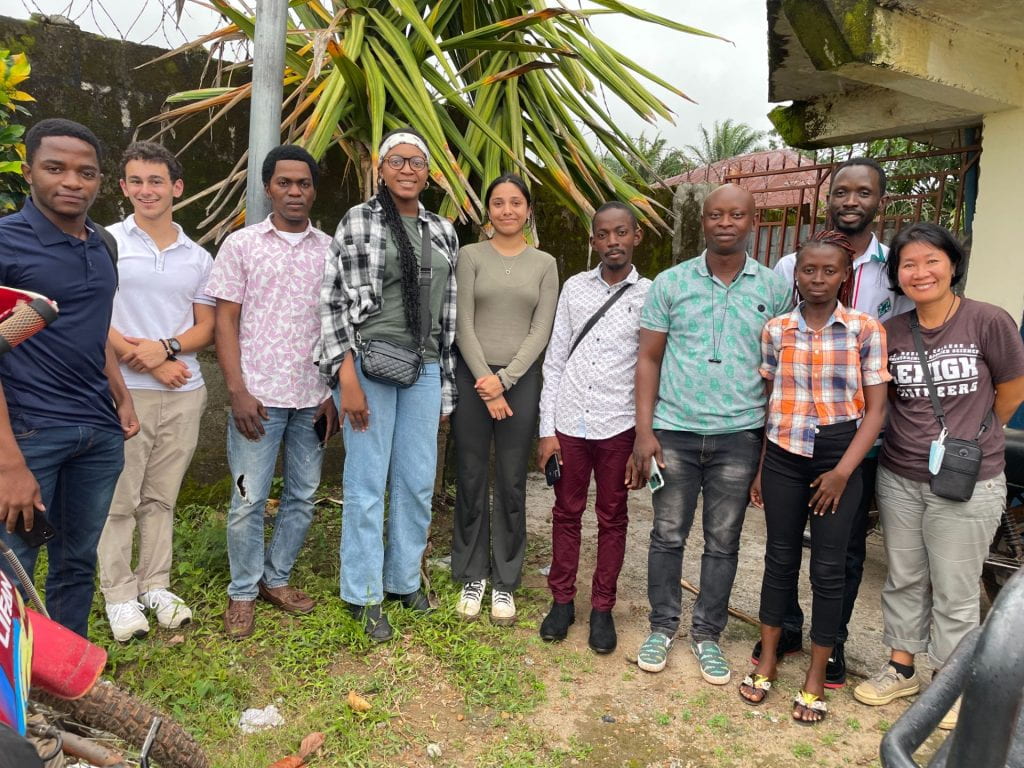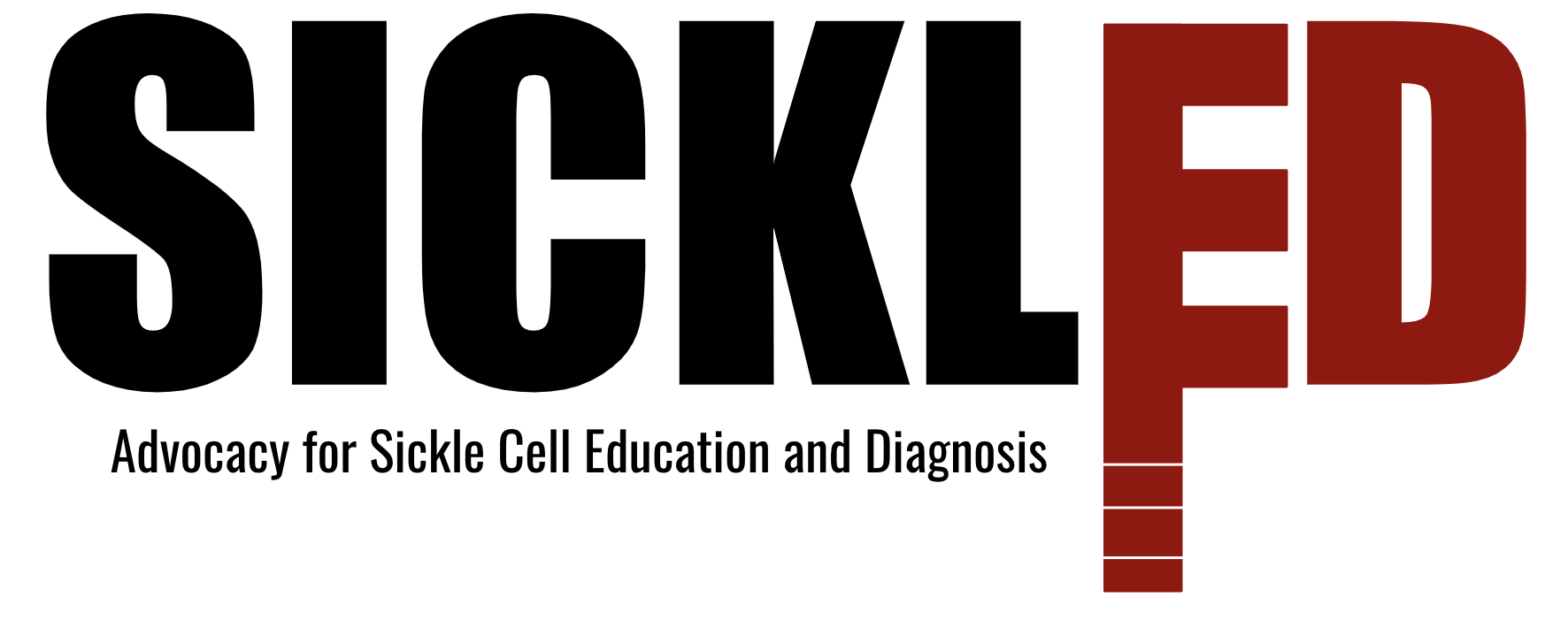The group decided to split up once again on Tuesday. While Hamsa and Chibugo visited Magbenteh hospital to speak to the medical superintendent (MS), Jake and Norman went to University of Makeni’s Fatima campus. Before heading over to Magbenteh, Hamsa and Chibugo stopped by Makama Clinic for antenatal care (ANC) day. We observed the standard process mothers typically go through on days like these. First, their blood pressure and weight are taken in a larger waiting room. These measurements are recorded down on a slip of paper, and the mothers are ushered into a private room to speak with the nurses. While a few women brought in their infants, the majority of the people there were

Our meeting with the medical superintendent (MS) of Magbenteh left a lasting impression on us. He had a remarkable depth of knowledge regarding sickle cell diseases that was immediately apparent, surpassing what we had encountered in previous interviews. He was able to articulate the complex medical and biochemical knowledge related to the disease, making it comprehensible even to those without a medical background. He was very willing to share insights and information and agreed to our request to record a video for our educational modules. This video is a valuable resource, thanks to his articulate explanations and personal stories. What really touched our hearts is that he mentioned how he lost his mother and her unborn child to medical complications, which motivated his passion for working in healthcare. His commitment to engaging the public and motivating them to seek diagnosis or raise awareness about sickle cell disease was evident throughout our discussion. Overall, our meeting with the medical superintendent was nothing short of amazing, leaving us inspired and a wealth of knowledge to make a meaningful impact.
During our recent visit to Uni Mak, the Sickled team—Norman, Jake, and Professor Cheng—took a pivotal step forward in our public health mission. The dean of the college of health, with enthusiasm, introduced us to a group of students and a public health professor, immediately setting the tone for productive discussions.
Our interaction went beyond pleasantries. The program coordinator gave us an opportunity to showcase the Sickled project, opening a dialogue about potential collaboration. But the most invaluable experience came when Norman and Jake spearheaded a focus group interview. The insights we gleaned from students and faculty provided a fresh perspective, ensuring our project’s direction aligns with the challenges and needs of the public health community. Further enriching our understanding was our dialogue with the public health professor, whose expert viewpoint added depth to our data.
Our recent visit to Uni Mak reaffirmed the indispensable value of direct, face-to-face interaction. The subtle nuances captured, the immediacy of feedback, and the authenticity of genuine conversations are simply irreplaceable. The collaborative spirit shone through, with Professor Cheng orchestrating foundational connections and Norman and Jake exemplifying teamwork during interviews. A standout realization was the importance of considering varied stakeholder perspectives. As we aim to design educational materials, our engagement with the public health professor highlighted that their primary emphasis is on prevention over diagnosis or other aspects. This insight is pivotal for our project’s direction. Moving forward, the Sickled team is invigorated by the rich insights, strengthened partnerships, and lessons gleaned from the Uni Mak.

Following up on a lead from Lunsar, the team went to meet the Sankoh Humanitarian Advoacy for Sickle Cell (SHAFS). At first, we didn’t know if we were going to make it. Talking to Ibrihim about the address, he seemed a bit confused. We initially went down the wrong road and ended up asking a family for directions. It turned out we were 10 minutes out of the way, but we eventually made it to the proper address after speaking to a lot of locals.
Mr. Abdulai Sankoh was waiting patiently outside and he waved us down. After welcoming us into his office, Abdulai introduced us to his entire team. They were all so kind, and two of them were SCD victims as well. Also, much of their team was also directly affected by SCD, either from being related to a victim or knowing a victim very personally. Each member of SHAFS spoke with a passion for advocacy and spreading important information about SCD.
They are a new organization, so they are still networking and collaborating with local health posts to create a web of connected health workers that can help spread the word. They are also in need of educational materials. Naturally, our team immediately thought we could help supplement their needs. We offered to lend a helping hand when it comes to creating flyers or informational initiatives. We also mentioned the possibility of connecting them to some larger SCD societies in Freetown.

Their next big campaign starts in September when school is back in session. They plan on going from school to school, giving teenagers an introduction to important SCD facts and practices. We are excited to see how their initiative pans out, and we intend to do as much as possible to keep ourselves in the loop. We are scheduled with the team for this upcoming Saturday to conduct more scientific research; we want to record a few advocates for our scientific study. They were very receptive to the idea of us returning, and we are all very excited about new collaborators.
